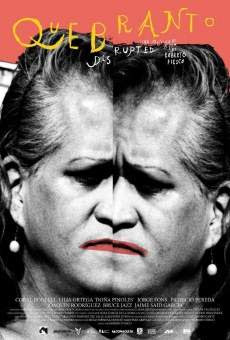 When Fernando Garcia Ortega was a young boy in Garibaldi, Mexico City in the 1970’s his pushy mother got him into the movies. It was tough being a child actor and filming a scene in his first big break the Director stopped the cameras and asked for more reality in the mob fight that was happening. So one of the other boys picked up a rock and smashed it down hard on his head. The Director was happy and he called ‘cut’. Pinolito (Fernando’s stage name) however was bleeding profusely. In his next role the adult star had to slap him very hard several times, and she never faked it once. Mexican movie making was tough, but he was at least on his way to being a star.
When Fernando Garcia Ortega was a young boy in Garibaldi, Mexico City in the 1970’s his pushy mother got him into the movies. It was tough being a child actor and filming a scene in his first big break the Director stopped the cameras and asked for more reality in the mob fight that was happening. So one of the other boys picked up a rock and smashed it down hard on his head. The Director was happy and he called ‘cut’. Pinolito (Fernando’s stage name) however was bleeding profusely. In his next role the adult star had to slap him very hard several times, and she never faked it once. Mexican movie making was tough, but he was at least on his way to being a star.These memories of his youth and much more are the subject of this rather fascinating documentary which is shaped by a long dialogue between Pinolito, now 50 years old, and his mother Doña Lilia Ortega an actress in her late 70’s. Both of them are no-longer appearing in movies, but are still performing one way or another. However Pinolito has made way for Coral as in his 20’s he/she changed genders.
Both women’s recollection of this particular moment in their lives was rather touching. One day Pinolito came home to the apartment he shared with his parents and without saying a word to them went straight to his bedroom and closed the door. Thirty minutes later he came out dressed in women’s clothes with a badly made up face and toppling in his new shoes and just blurted out, ‘from now on I’m a woman, whether you like it or not’. And that was that, and mother completely taken unawares, decided that she would ‘like it’ , albeit reluctantly.
Life was tough for them when the work started drying up, and then the 1986 earthquake robbed them of Coral’s brother and their home. From actor she evolved into dancer/cabaret performer, escort, dance teacher and even street prostitute. In most cases as she had retained so many masculine physical traits she faced the reality of the hardship of rejection because of her gender change.
Filmmaker Roberto Fiesco in his first main directing stint succinctly captured the overwhelming sadness of these two very voluble women who cannot stop themselves yearning for their past. Coral however still has no regrets for the brave steps she took in finding her real identity even though she has paid a hefty price for this. Both mother and daughter who are extremely close, are willing subjects who want to talk about everything they have been through, but it’s the candid long shots that Fiesco includes when they are silent that really speaks volumes
A tad incohesive in part, this disconsolate story of the two aging extremely likable women who seem to be resigned to living out their days in such a despondent manner, is oddly compelling viewing.


